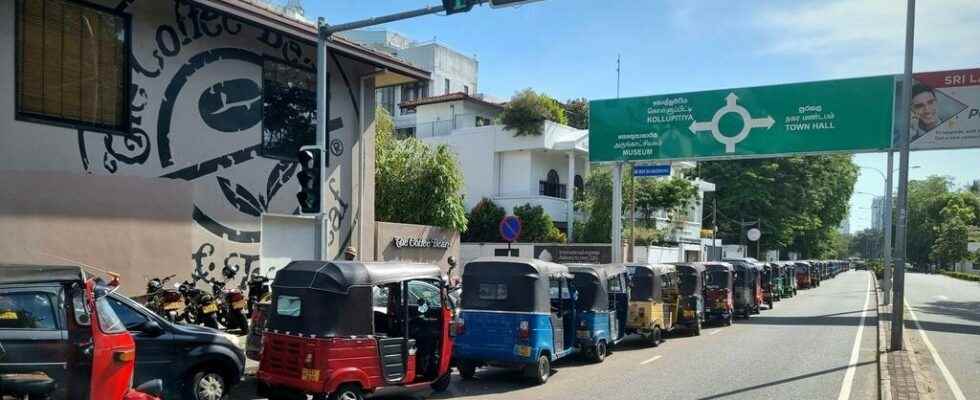The state of emergency has been lifted since Thursday morning in Sri Lanka after months of demonstrations for the departure of President Gotabaya Rajapaksa. In the country, the economic situation remains tense and the inhabitants hope for an improvement in the cost of living.
With our correspondent in Colombo,
Since mid-July the new president chosen by parliament has been Ranil Wickremesinghe. Just as he chose to lift the state of emergency, a small protest broke out in Colombo. It was students who demonstrated and they were quickly dispersed by the police, but this shows that the situation is still tense. Since the beginning of the movement, the youth has been massively invested in the organization of the revolt movement called Aragalaya. This movement gradually subsided with the resignation of Rajapaksa, the formation of a new governmentbut also the dispersal of the historic site of the demonstrators in Colombo that Ranil Wickremesinghe ordered as soon as he took power, followed by the state of emergency.
Today, the population is torn. Ranil Wickremesinghe is far from being unanimous, because even if he is not from the Rajapaksa party, he was the Prime Minister of the hated president and of whom he is perceived as close. But in his inaugural speech, he promised to work with all parties to rebuild the country and the opposition is playing the game for now.
The inhabitants are also very tired of the economic crisis and the political ups and downs, so for the moment they seem to be giving it a chance. But the Aragalaya movement has also fractured and the most demanding fringe, especially the youth, remains very skeptical, especially with the arrests that followed his takeover. The youth could therefore resume demonstrations at any time. It will take strong actions, in particular the revocation of the 20th amendment to the constitution that Rajapaksa had passed to enormously strengthen presidential power. Ranil Wickremesinghe is committed to it.
Ongoing discussions with the IMF
The economic situation will also need to improve. Compared to two months ago, there are some positive signals since the queues of several kilometers in front of service stations to obtain gasoline have disappeared. It’s not so much that there’s a lot more oil, but that a rationing system per vehicle per week has been put in place and is proving quite effective. Power cuts have also decreased. So everyday life is a little easier.
Discussions with the International Monetary Fund, which will be essential to restructure the country’s abysmal debt, are continuing virtually. We must now agree on a set of measures that will increase tax revenue for the government while reducing expenditure. An IMF delegation should arrive in Sri Lanka for this by the end of the month, however everything remains to be rebuilt. The economy will contract by 8% this year and the rest will depend on the ability of political parties to agree on a common program, to inspire confidence in citizens and of course also on the global context.
►Listen: The country’s economic situation is pushing Sri Lankans to emigrate
